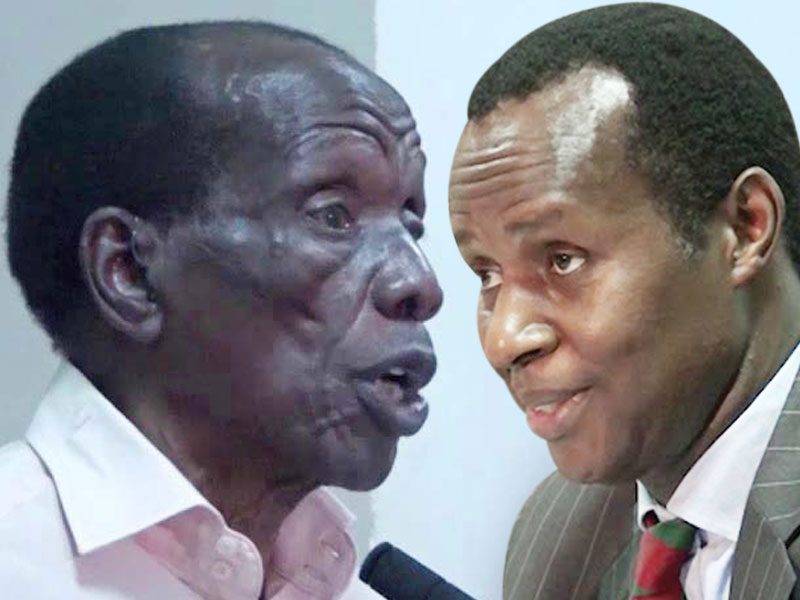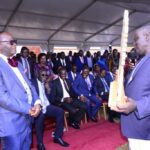Dr. Mohammad Buwule Kasasa, a renowned figure in Ugandan history, passed away at the age of 93 in Kampala. He was the personal physician to the late Ugandan leader, Edward Muteesa II. Dr. Kasasa’s demise was due to a long battle with cancer. His legacy as a dedicated medical professional and his association with a pivotal figure in Uganda’s past will be remembered.
Dr. Mohammad Buwule Kasasa, the former personal physician of Uganda’s former leader, Edward Muteesa II, passed away from cancer at 93 in Kampala. He was a beloved father, grandfather, guardian, husband, and friend who touched the lives of many with his kindness, generosity, and unwavering spirit. Despite his passing, Dr. Kasasa’s legacy as a dedicated medical professional and his association with a pivotal figure in Uganda’s past will be remembered.
“Dr. Mohammad Buwule Kasasa, a luminary in the medical field and a steadfast companion to the late Ugandan leader Edward Muteesa II, has left an indelible mark on the lives of countless individuals. His passing at 93 has left a void in the hearts of his loved ones, who fondly remember him as a devoted father, grandfather, guardian, husband, and friend. His extraordinary kindness, generosity, and unwavering spirit inspired a legacy of love, compassion, and strength that will continue to resonate with all those who had the privilege of knowing him.”
Dr. Mohammad Buwule Kasasa, the former personal physician of Uganda’s ex-leader, Edward Muteesa II, passed away from cancer at 93 in Kampala. He was a kind, generous, and dedicated doctor who inspired a legacy of love and compassion that will continue to resonate with those who knew him. Despite his passing, a vigil was held on Wednesday, June 19, 2024, at Old Kampala, and he was buried on Thursday, June 20, 2024, at 2 p.m. at Kitetika, Gayaza road
Dr. Mohammad Buwule Kasasa’s passing was marked by a mix of sadness and frustration, as he had spent his final days fighting a tireless battle to reclaim his rightful property from land grabbers. Despite his notable contributions to Uganda’s medical field and his service as personal physician to the former leader, Edward Muteesa II, Dr. Kasasa’s latter years were met with injustice and disappointment.
His family revealed that he died a bitter and frustrated man, defeated by the legal system’s inability to protect his rights and restore his scenic land on Mutungo, overlooking Lake Victoria, which had been unjustly taken from him. His legacy serves as a reminder of the struggles many face in seeking justice and the importance of upholding property rights.
How it happened
The fate of Kabaka Edward Muteesa II, the revered leader of the Buganda Kingdom, took a drastic turn on May 24, 1966. Faced with the treacherous betrayal of Idi Amin’s soldiers, acting on the orders of Prime Minister Milton Obote, Muteesa was forced to flee his palace, leaving behind the comforts and security of his royal life. Exiled in London, the former captain in the British Grenadier Guards was reduced to relying on the charity of others, his financial situation dire.
The British government, fearful of straining relations with Obote’s regime, hesitated to provide substantial support to the deposed king, leaving Muteesa to face the harsh realities of exile. This poignant chapter in Ugandan history serves as a testament to the turbulent legacy of political intrigue and power struggles that have shaped the nation.
The complex and tumultuous relationship between Kabaka Edward Muteesa II and the British monarchy is further revealed. The Kabaka’s desire for Buganda’s independence and self-governance led to clashes with the Queen in 1953 and 1961, resulting in his exile to Britain in 1953, orchestrated by Governor Andrew Cohen on the Queen’s orders. This marked the beginning of a difficult period for Muteesa, who was forced to live in poverty, stripped of his royal comforts and privileges. His struggles continued until his eventual demise, a fate that was met with widespread sorrow and outrage. The legacy of this tumultuous period in Ugandan history continues to shape the nation’s identity and inform its relationships with the British monarchy.
Sir Edward Muteesa
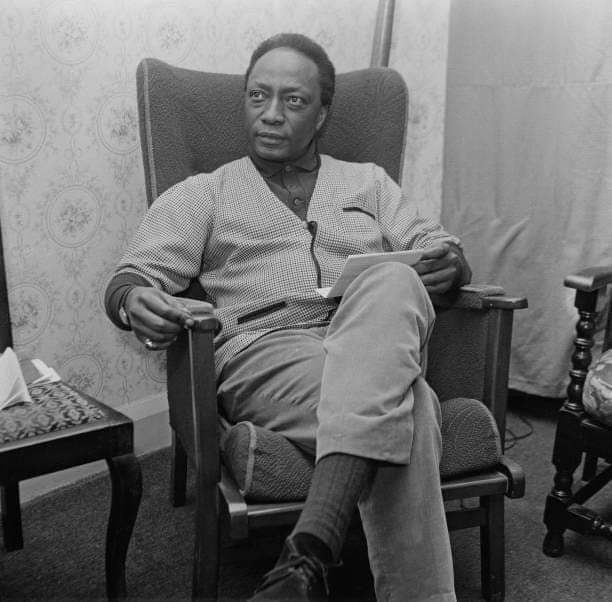
TV10GanoMazima, understands the Power of Attorney was brought to Uganda and registered on May 10, 1968 by former Democratic Party boss and city lawyer, Benedicto Kiwanuka The land was on June 13, 1968 sold to Paul Kwemalamala Kintu, a businessman from Masaka.
The poignant struggles of Kabaka Edward Muteesa II in exile are heart-wrenchingly revealed. When queried by London officials about his precarious financial situation, Muteesa humbly admitted to surviving on a meager £6 per day, a paltry sum for a monarch of his stature.
In a desperate bid to alleviate his financial woes, he was asked if he had any properties to sell or liquidate, a painful reminder of his fallen fortunes. This glimpse into Muteesa’s life in exile serves as a testament to the dramatic reversal of fortunes that befell the once-mighty Kabaka, a stark contrast to his former life of royal splendor.
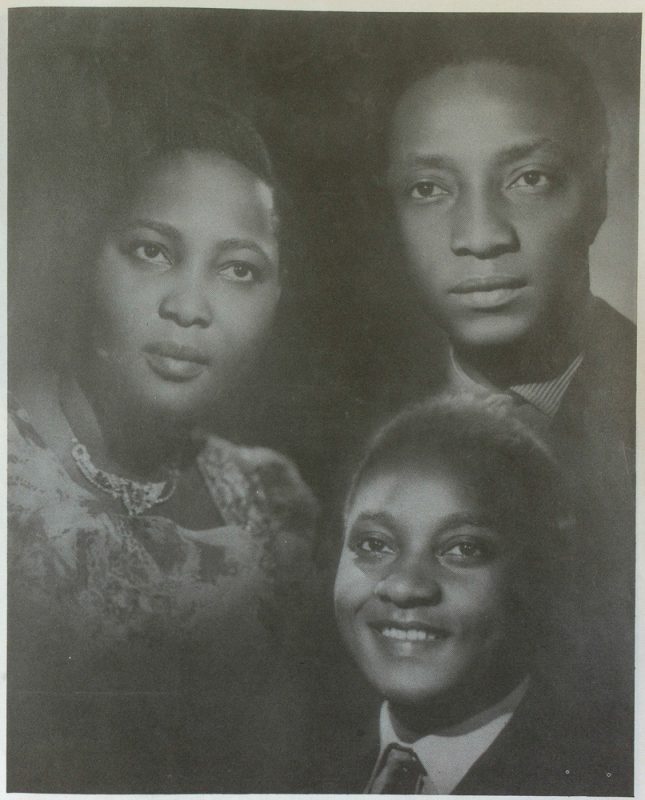
Here are some key points about the sale of Muteesa’s land on Mutungo Hill:
In May 1968, Muteesa authorized his sister, Nalinya Mpologoma, to sell the land.
The land was sold to Paul Kwemalamala Kintu, a businessman, on June 13, 1968.
The sale was likely facilitated through a company called Lake View Properties, which was owned by Benedicto Kiwanuka, Lawrence Sebalu, and Joseph B. Mubiru.
Lake View Properties later used the land as security for a loan from Barclays Bank but failed to repay it.
In 1979, Dr. Mohamed Buwule Kasasa, Muteesa’s former doctor and friend, bought the land from Barclays Bank to prevent it from being sold at a low price.
Muteesa’s sister, Nalinya Mpologoma, was granted power of attorney to sell the land on May 10, 1968.
The land was sold to Paul Kwemalamala Kintu, a businessman from Masaka, on June 13, 1968.
Lake View Properties, a company owned by Benedicto Kiwanuka, Lawrence Sebalu, and Joseph B. Mubiru, acquired the land from Kwemalamala in November 1968.
Lake View Properties used the land as security for a loan from Barclays Bank but failed to repay it.
In 1979, Dr. Mohamed Buwule Kasasa, Muteesa’s former doctor and friend, bought the land from Barclays Bank to prevent it from being sold at a low price.
Interesting! It seems that the proceeds from the sale of Muteesa’s land on Mutungo Hill were eventually handed over to him in London, thanks to the intervention of Charles Njonjo, who was then the Attorney General of Kenya. What’s more, Muteesa and Njonjo had a prior connection, having studied together at King’s College Buddo. This personal connection likely played a role in Njonjo’s willingness to assist Muteesa in accessing the funds from the sale of his land. It’s a fascinating example of how personal relationships and networks can influence the course of events, even in complex legal and financial matters.
Hell breaks loose
The sale of Muteesa’s Mutungo property to raise funds for his living expenses in exile eventually became public knowledge, sparking outrage from President Milton Obote. Obote, who had previously clashed with Muteesa and exiled him, was likely infuriated by the fact that Muteesa had managed to access funds from the sale of his property, potentially undermining Obote’s efforts to keep him in financial distress.
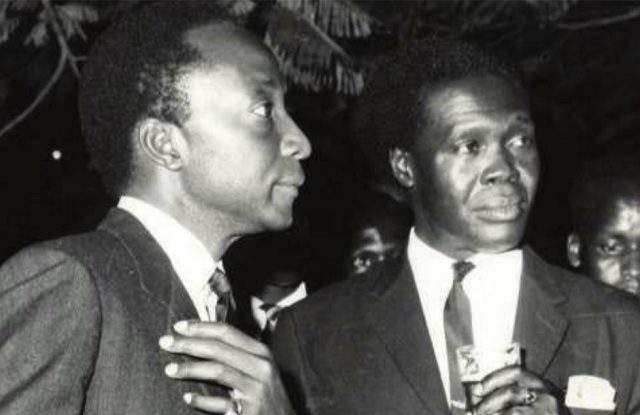
This development may have further strained the already tense relationship between the two, highlighting the complex web of political and personal dynamics at play in this chapter of Ugandan history.
According to former Land Commission official, Kulumba Kiingi, “after one or two weeks when the sale was leaked to the press and fell into Obote’s ears, he became furious and wanted to know how and when Muteesa visited Uganda to conduct the sale. Here are some key points reacted by President Milton Obote about the sale of Muteesa’s land on Mutungo Hill:
Muteesa signed a special Power of Attorney on May 3, 1968, granting his sister Nalinya Mpologoma authority to sell the land.
The Power of Attorney was registered at the Registrar of Documents in Uganda under Instrument No. 142 on May 10, 1968.
The land was sold to Paul Kwemalamala Kintu, a businessman from Masaka, on June 13, 1968.
Lake View Properties, a company owned by Benedicto Kiwanuka, Lawrence Sebalu, and Joseph B. Mubiru, acquired the land from Kwemalamala in November 1968.
When Obote learned about the sale, he became furious and tried to understand how Muteesa had managed to visit Uganda without his knowledge.
Kulumba Kiingi, a former Land Commission official, reported that Obote was enraged by the news of the sale and wanted to know how and when Muteesa had visited Uganda to conduct it.
Kiingi also stated that he was nearly picked up by security operatives and was only protected by Mr. Wilikinson, the Registrar of titles.
Kulumba Kiingi’s account suggests that he faced potential danger and intimidation from President Obote’s security forces, specifically the General Service Unit (GSU) operatives led by Akena Adoko and Aggrey Awori, simply because of his ethnic identity as a Muganda.
This reveals the tense and volatile political climate of the time, where ethnic affiliations and allegiances played a significant role in the struggles for power and control. Kiingi’s close call with the GSU operatives highlights the risks and dangers faced by those perceived to be loyal to the deposed Kabaka Muteesa II and the Buganda Kingdom, and underscores the challenges of navigating such treacherous political waters.
That’s a crucial detail! Kulumba Kiingi’s account reveals that he was shielded from potential harm by Mr. Wilikinson, the Registrar of titles, who intervened to protect him from possible harassment or arrest by security agencies. This suggests that Wilikinson may have had some influence or authority that allowed him to shield Kulumba from the reach of Obote’s security forces.
It’s a testament to the power of individual actions and alliances, even in the face of larger political tensions and conflicts. Wilikinson’s actions likely saved Kulumba from serious consequences, and their relationship may have been a crucial factor in Kulumba’s ability to survive and later share his account of events.
The media did Not Spare Muteesa.

Ignatius Musazi, a prominent figure in Uganda’s independence movement, expressed strong sentiments against Kabaka Muteesa II in ‘The People’ newspaper on December 21, 1968. Musazi viewed Muteesa’s actions as a “crime of the highest order” and believed that he should not have been allowed to sell his property to fund his “evil schemes” against the Ugandan Republic.
This quote highlights the intense political divisions and animosity towards Muteesa following his exile and the abolition of the Buganda Kingdom. Musazi’s words reflect the perception of Muteesa as a threat to the new Ugandan state and the lingering tensions between the central government and the Buganda Kingdom.
Joseph Kiwanuka’s response suggests that he was trying to distance himself from any direct transaction with Kabaka Muteesa II, possibly due to the controversial nature of Muteesa’s land sales.
By claiming that he bought the land from an intermediary who had previously purchased it from Muteesa, Kiwanuka may have been attempting to downplay any perceived connection to the deposed king and avoid scrutiny from the government or other opposing forces. This response highlights the complex web of alliances, rivalries, and political sensitivities that characterized Uganda’s tumultuous history during that period.
Bank loan
Meanwhile, Lake View Properties later used the Mutungo land as security to borrow money from Barclays Bank but failed to pay back. Six years down the road, the bank decided to sell the collateral to recover its money. Here are the following events that happened afterward:
The bank sold the land to Dr. Mohamed Buwule Kasasa, a close friend and personal doctor of Muteesa, for Shs 1,000,000.
Dr. Kasasa developed some parts of the land and sold about 100 acres to wealthy Kampala residents.
The Kabaka Ronald Muwenda Mutebi sued Kasasa in 2006 for illegally acquiring the Mutungo land.
The Court of Appeal ruled in favor of Kasasa on November 14, 2022.
Sensing the bank would sell the property at a giveaway price, the Kiwanukas in 1979, quickly moved around in search of a buyer before zeroing on Muteesa’s former private doctor and close friend, Dr Mohamed Buwule Kasasa. Here is a timeline of events regarding the Mutungo land:
1968: Kabaka Muteesa II sells the land to Benedicto Kiwanuka, the then-Chief Justice of Uganda, who then transfers it to Lake View Properties.
1972: Kiwanuka and his colleagues mortgage the land to Barclays Bank.
1975: The bank sells the land to Dr. Muhammad Buwule Kasasa for Shs 1,000,000.
2005: The family of Kabaka Muteesa II, led by Prince David Wasajja, files a civil suit against Dr. Kasasa, claiming the land was fraudulently taken from them.
2006: Kabaka Ronald Muwenda Mutebi II sues Dr. Kasasa for illegally acquiring the Mutungo land.
2019: Prince Wasajja accuses the late Ben Kiwanuka of grabbing Muteesa’s Mutungo land.
November 14, 2022: The Court of Appeal rules in favor of Dr. Kasasa, confirming him as the rightful owner of the land.
Dr. Mohamed Buwule Kasasa, a former District Medical Officer for Mengo and personal doctor to Kabaka Muteesa II, relocated to Kasese after the attack on Lubiri in 1966. He started a new chapter in his life by opening a pharmacy in Kasese, which became very successful and helped him amass a significant fortune. This move not only ensured his safety but also showcased his resilience and entrepreneurial spirit.
His pharmacy venture in Kasese thrived, allowing him to rebuild his life and eventually re-emerge as a prominent figure in Uganda’s history, later becoming a key player in the controversial acquisition of the Mutungo land.
That’s a clever move by Dr. Kasasa! When Idi Amin expelled Asians from Uganda in 1972, many businesses were abandoned, creating a shortage of essential goods, including medicines. Dr. Kasasa seized this opportunity to open a pharmacy along Kampala Road, capitalizing on the shortage and making a significant profit.
His business acumen and ability to adapt to challenging situations helped him thrive during a tumultuous period in Uganda’s history. By filling a critical gap in the market, Dr. Kasasa’s pharmacy became a vital resource for the community, further solidifying his reputation and fortunes.
Dr. Kasasa’s success in business and entrepreneurship enabled him to live a comfortable life and provide a high-quality education for his children. He invested in real estate, purchasing a house on a sizable plot of land in Buziga and flats in Mengo, indicating his wealth and financial stability. Moreover, he was able to send over ten of his children to prestigious universities in the United States, Britain, and Ukraine, paying their school fees in full, without relying on loans or financial aid. This demonstrates his commitment to providing his children with the best possible education and securing their future. Dr. Kasasa’s story serves as a testament to his hard work, business acumen, and dedication to his family’s well-being.
Dr. Kasasa’s interview with TV10GanoMazima reveals his financial stability and confidence. He explicitly states that money was not a problem for him, and he was able to pay Shs 1,000,000 to Barclays Bank to acquire the Mutungo land.
This amount was a significant sum at the time, indicating Dr. Kasasa’s substantial wealth and financial capabilities. His statement also highlights his shrewd business sense and ability to make strategic investments, such as purchasing the Mutungo land, which became a valuable asset. Dr. Kasasa’s interview provides a glimpse into his successful entrepreneurial journey and his ability to navigate Uganda’s business landscape with ease.
We need your land
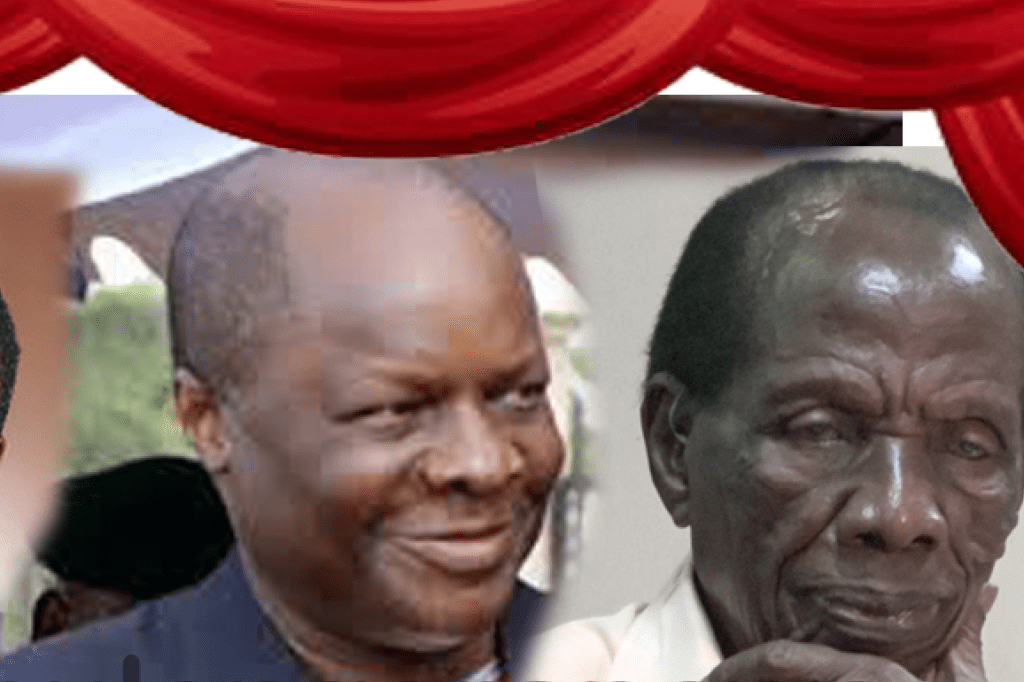
Dr. Kasasa’s acquisition of the Mutungo land led to significant development and transactions. He initiated development projects on portions of the land and sold approximately 100 acres to affluent individuals in Kampala, who constructed luxurious residences on Mutungo Hill.
This strategic sale and development of the land further solidified Dr. Kasasa’s financial standing and underscored his savvy business acumen. The sale of land to prominent individuals on Mutungo Hill, a prime location, highlights the land’s value and desirability.
Dr. Kasasa’s ability to capitalize on this opportunity demonstrates his knack for identifying lucrative ventures, which contributed to his substantial wealth and reputation as a successful entrepreneur
It seems that Dr. Kasasa’s success and ownership of the Mutungo land led to new challenges. Many years after his acquisition and development of the land, he was approached by individuals from Mengo at his home in Buziga, who demanded that he hand over 25 acres of the land to them without compensation. This unexpected demand may have been related to the land’s historical significance, cultural heritage, or unresolved claims.
The fact that these individuals appeared at his home, requesting a substantial portion of land without offering payment, suggests a potentially contentious situation. Dr. Kasasa’s response to this demand is not mentioned, leaving one to wonder how he navigated this complex and likely tense situation.
Dr. Kasasa’s willingness to sell the land to the men from Mengo suggests that he was open to negotiations, but the men’s aggressive approach and warning of “serious consequences” implies a threatening tone.
The fact that they left without reaching an agreement and that Dr. Kasasa’s life later took a turn for the worse suggests that this encounter may have been a turning point in his life. It’s possible that the men were connected to the royal family or other powerful interests that felt entitled to the land, and Dr. Kasasa’s refusal to give in to their demands may have led to a backlash.
The exact nature of the consequences that befell Dr. Kasasa is not specified, but it’s clear that this incident marked the beginning of a difficult period in his life.
Court Battles
The dispute over the Mutungo land escalated into a legal battle in 2006, with Kabaka Ronald Muwenda Mutebi, the king of Buganda, suing Dr. Kasasa in court.
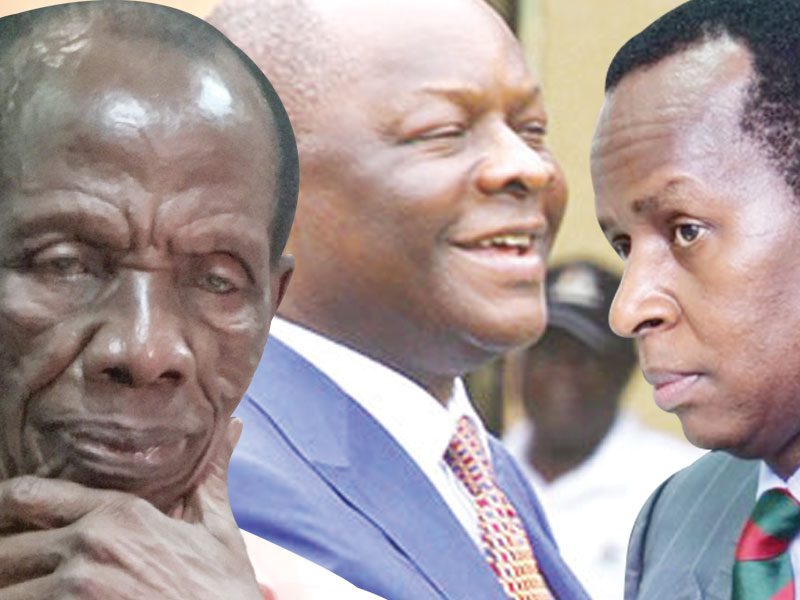
The Kabaka alleged that Dr. Kasasa had illegally acquired the land and that the Power of Attorney used to transfer the ownership from Muteesa II was fraudulent.
This move by the Kabaka suggests that the royal family was determined to reclaim the land, which they believed was rightfully theirs. The legal battle that ensued would likely have significant implications for Dr. Kasasa’s ownership of the land and his reputation. The court’s ruling would ultimately determine the fate of the Mutungo land and the validity of Dr. Kasasa’s claim to it.
The Kabaka’s claim suggests that Lake View Properties and Kwemalamala were essentially the same entity or had a close relationship, and that they were involved in the alleged fraudulent transfer of the land from Muteesa II to Dr. Kasasa.
The Kabaka’s argument was that while the land was still under Kwemalamala’s name, Kiwanuka and his colleagues, who were connected to Lake View Properties, placed a caveat on the property, claiming to be co-owners of the land.
The Kabaka alleged that three days after the incorporation of Lake View Properties, the same individuals withdrew the caveats, allowing the land to be sold to Kiwanuka’s company. This claim was part of the Kabaka’s legal battle to reclaim the land and seek compensation for the alleged fraudulent transfer.
The Kabaka’s argument in court was that while the land was still registered under Kwemalamala, Kiwanuka and his associates, who were connected to Lake View Properties, placed a caveat on the property, falsely claiming to be co-owners of the land.
This move, according to the Kabaka, was a fraudulent attempt to gain control over the land and pave the way for its sale to Lake View Properties, which was ultimately sold to Dr. Kasasa. The Kabaka’s legal team likely argued that this caveat was a crucial step in the alleged fraudulent transfer of the land and that it was invalid since Kiwanuka and his colleagues had no legitimate claim to co-ownership.
The Kabaka’s lawsuit against the government reveals the magnitude of the dispute. By suing the government for Shs 192bn, the Kabaka is seeking significant compensation for the alleged wrongful reallocation of ownership of the land on Mutungo Hill.
The Kabaka’s claim is that the government’s actions led to the illegal transfer of the land to Dr. Kasasa, resulting in significant financial losses for the royal family. The withdrawal of the caveats by Kiwanuka and his associates, just three days after the incorporation of Lake View Properties, is seen as a crucial step in the alleged fraudulent transfer.
The Kabaka’s legal team is likely arguing that this sequence of events demonstrates a concerted effort to deprive the royal family of their rightful ownership of the land.
The Court of Appeal’s ruling on November 14, 2022, brought a significant turning point in the legal battle. The court essentially ruled that the Kabaka’s admission of losing the land meant he couldn’t pursue both compensation and recovery of the same land from Dr. Kasasa. This decision likely means that the Kabaka’s claim to the land was deemed waived, and Dr. Kasasa’s ownership was upheld.
The court’s ruling may have been based on the legal principle of “election of remedies,” which bars a party from pursuing contradictory remedies for the same claim. The Kabaka’s admission of losing the land may have been seen as an election of remedies, precluding him from later seeking recovery of the same land.
The court’s ruling ultimately favored Dr. Kasasa, declaring that the sale and transfer of the land to him was lawful and legitimate. The court recognized Dr. Kasasa as a bona fide purchaser for value, which means he bought the land in good faith, without knowledge of any potential legal issues or fraud.
As a result, the court granted him protection under the law, ensuring that he cannot be forcibly removed from the land. This ruling effectively solidified Dr. Kasasa’s ownership of the Mutungo land, bringing an end to the protracted legal battle with the Kabaka.
Interview
Dr. Kasasa’s reaction to the court ruling was one of immense relief and vindication. After enduring a grueling 20-year legal battle, he finally received the justice he had been seeking. The prolonged dispute had taken a significant toll on him, and he described the experience as “torture.”
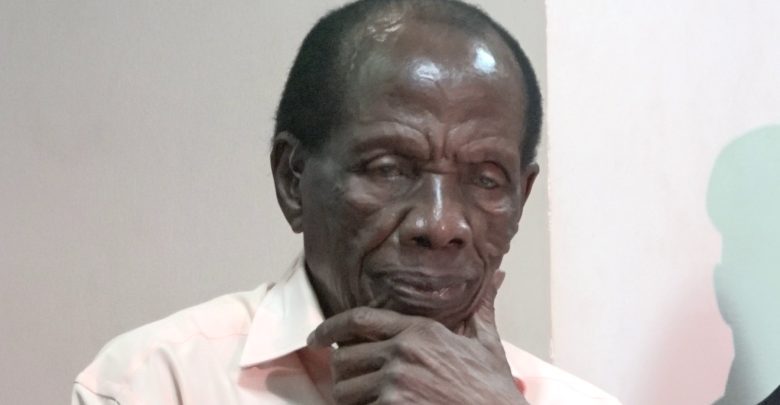
The court’s ruling not only validated his ownership of the land but also brought closure to a chapter of his life marked by uncertainty and stress. Dr. Kasasa’s relief was likely accompanied by a sense of gratitude for the legal system’s ultimate recognition of his rightful claim to the Mutungo land.
Dr. Kasasa’s emotional response to the court ruling is palpable in this quote. He expresses his happiness and relief, and also reflects on his past relationship with Muteesa II, the former Kabaka of Buganda.
Dr. Kasasa’s connection to the royal family was strong, and he fondly recalls his friendship with Muteesa II, whom he served as a personal doctor. He suggests that if Muteesa II were still alive, he would have protected Dr. Kasasa from the legal troubles and challenges he faced. The quote provides a glimpse into Dr. Kasasa’s emotional state and his sense of vindication after the long legal battle.
Dr. Kasasa’s words convey a deep sense of loyalty and devotion to the late Muteesa II. He is convinced that the former Kabaka would have protected him from the legal battles and troubles he faced, had he been alive. The quote suggests that Dr. Kasasa feels a strong sense of betrayal and injustice from the Mengo establishment, which he believes has failed to recognize and honor his service and loyalty to the royal family.
The mention of Muteesa II “turning in his grave” implies that Dr. Kasasa believes the late Kabaka would be dismayed by the treatment he has received from the Mengo establishment. The emotional tone of the quote highlights the depth of Dr. Kasasa’s feelings and his sense of hurt and betrayal.
Dr. Kasasa’s words paint a vivid portrait of Muteesa II’s personality and character. He describes the former Kabaka as strong-willed, caring, popular, generous, and kind. Dr. Kasasa also highlights Muteesa’s likable nature, despite being difficult to convince at times.
The quote suggests that Muteesa II was a just and fair leader, who would not exploit or oppress his subjects, and was particularly protective of commoners’ property.
Dr. Kasasa’s personal experiences and interactions with Muteesa II have clearly left a lasting impression on him, and he holds the former Kabaka in high esteem.
The quote provides valuable insight into the personality and leadership style of Muteesa II, and serves as a testament to Dr. Kasasa’s admiration and respect for the late Kabaka.
Dr. Kasasa’s statement reveals his confusion and disappointment regarding the Kabaka’s involvement in the efforts to take away his land. Despite his close relationship with Muteesa II and his service as the Kabaka’s personal doctor, Dr. Kasasa struggled to comprehend why the current Kabaka would support initiatives that aimed to deprive him of his rightful property.
This sentiment suggests that Dr. Kasasa felt a sense of betrayal and hurt by the Kabaka’s actions, which he may have perceived as a departure from the values and principles that Muteesa II stood for.
Dr. Kasasa’s emotions are palpable as he recounts his past connections with Kabaka Mutebi, also known as Ssabataka. He fondly recalls their relationship, having served as chairman of Tteefe bank and providing financial assistance to Mutebi when needed.
However, his tone turns to pain and betrayal as he reveals that the same Kabaka Mutebi is now among those who have put him through 20 years of legal struggles, which he describes as “torture”. Dr. Kasasa’s words convey a deep sense of hurt and disappointment, feeling that someone he had helped and considered a friend has turned against him. The use of the word “unforgivable” underscores the depth of his emotional pain.
Dr. Kasasa’s statement reveals his confidence in the legality of his case and his expectation of a favorable ruling. He categorically calls the case against him a “frameup” and emphasizes that Buganda had no legitimate grounds for legal action. Dr. Kasasa expresses frustration and disappointment with the judiciary, feeling that they delayed justice for 20 years despite the straightforward nature of the case. He reiterates his legal position, highlighting that as a bona fide purchaser protected by law, he was immune from lawsuits seeking to reclaim the land. His argument underscores his belief in the strength of his legal case and his sense of vindication with the eventual ruling in his favor.
Dr. Kasasa’s words paint a vivid picture of the significant impact the legal battle had on his life. He describes how the lawsuit disrupted his normal life, making it difficult for him to travel and limiting his ability to develop or sell his land.
He poignantly shares how the situation affected his family, including his inability to send his children abroad for education due to financial constraints.
The blocking of payments from UNRA, including money intended for medical treatment abroad, added to his distress. Dr. Kasasa emphasizes the immense mental torture he suffered, feeling denied access to his hard-earned wealth and unable to utilize his 500 acres of prime land in Kampala.
His dream of making good use of the land in his final days was unfortunately left unfulfilled, as he passed away before the caveats were vacated.

